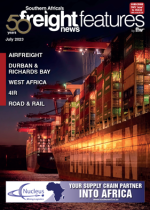Transnet Freight Rail’s train bound for the uncoupling of operations from the network is not only running late – it effectively has not left the station.In his State of the Nation address in March, President Cyril Ramaphosa announced that an infrastructure manager function would be up and running by October.However, the tender for “the organisational design of a new operating model for Transnet Freight Rail (TFR) to incorporate the infrastructure manager function” was only published on April 22. It closed 25 days later on May 17.That gave bidders limited time to prepare a proposal which, according to the bid document, “is estimated not to exceed R50 000 000 (all applicable taxes included)”.Transnet gave itself 180 days to announce its decision – which takes the process to November 13, and that is for the appointment of consultants to devise the new model.Only then will the train start chugging out of the station to an as-yet undetermined destination.The concept of asking the private sector to help put the state monopoly back on track is contained in the White Paper on National Rail Policy (NRP, 2022), which proposes that third-party operators be given access to the TFR railway infrastructure network “as the crux of South African rail reform”.The authors of the White Paper are in no rush to build up a head of steam. “The Policy intends to place rail on a sound footing to collaborate with and compete against other transport modes, and to position rail to serve as a national land transport backbone by 2050,” it states.As with other state monopolies, TFR is not giving up its grip easily.According to Freight Newssources, the conditions TFR set in 2022 for allowing a private operator access to the rail network were so onerous and commercially unattractive that the only successful bid was for the Kroonstad to East London slot by Traxtion Africa.When (or if ) the rail network is opened up to private operators, they will need deep pockets for rolling stock as well as marketing and sales.Transnet estimates that it has just 23% of the container transport market. It believes the rail potential is a 33% market share.A far more lucrative market is the movement of bulk, which is where Transnet is focused.The mining industry accounts for 80% of TFR’s annual revenue and half of Transnet’s group revenue.Despite its dependence on bulk, Transnet is failing to keep the wheels rolling.At the Minerals Council’s 133rd Annual General Meeting, outgoing CEO Roger Baxter said, “the challenges with logistics affect the entire economy and pose a risk as severe as – if not more severe than – Eskom”.The council estimates that deficiencies in Transnet-managed ports and freight rail lines may have cost the country R150 billion in lost export earnings during 2022

